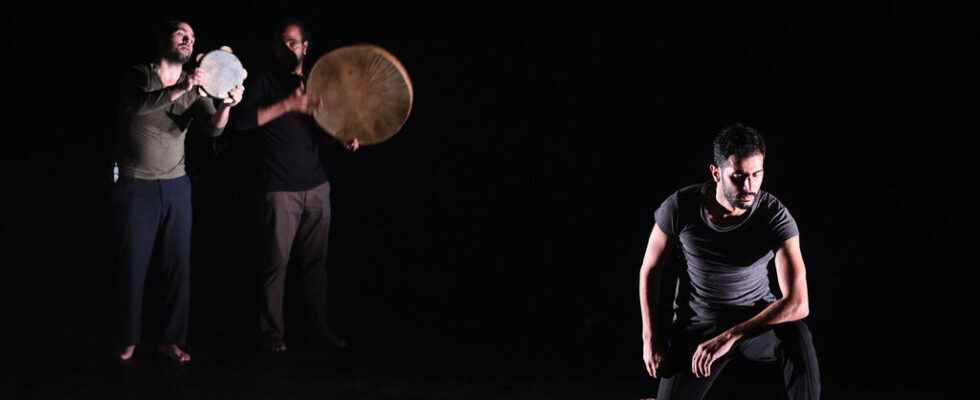The 76th edition of the Avignon Festival is almost over. Among the latest pieces presented, there is a strong Lebanese presence, such as the choreographer Ali Chahrour. He presents his latest creation When my mother used to tell, 2nd part of a trilogy on love. The 30-year-old artist is a regular at the festival: this is the third time he has been in the In program.
After a first part on love-passion, it is maternal love that is in question in this last play by Ali Chahrour. And once again, the Lebanese choreographer from the Shiite community draws his inspiration from the intimate.
“When my mother used to tell is inspired by mothers in Beirut and more particularly by mothers in my family. It is an intimate and personal piece, he explains. We tell two stories on stage : the story of my aunt Fatmeh and her long search for her missing son Hassan, and the story of Laila, Fatmeh’s cousin, who managed to save her son from the fight and bring him back into the family fold. »
” The women of Lebanon are heroines »
On stage, Ali Chahrour mixes professional artists, musicians, actresses and himself a dancer, with amateurs. ” I didn’t want to water down the story or cut corners in the show, especially with the dancing. Because I have two amateurs on the set and I didn’t want to impose a particular movement on them, continues the choreographer. So there is the presence of my cousin: this mother, Laila, with her son. And I built my piece around them and what they give off. »
Laila is not performing. Her motherly love in its raw state is perceptible on stage. She also embodies the heartbreak of all those grieving mothers in the Middle East and around the world from whom war tears their sons away. And Ali Chahrour once again puts women at the heart of his play: “ The women of Lebanon and of the entire region are heroines. Many stories are silenced. They are hidden in the houses and streets of Beirut. »
Beirut, the DNA of Ali Chahrour’s work, which summons popular songs in this piece, an old Sumerian lullaby and which brilliantly mixes music, dance, theater in a demanding, radical piece, right up to Laila’s final cry, that of an entire Lebanese population plagued by the disasters of recent years: the terrible explosion in the port of Beirut, the pandemic and the economic collapse.
